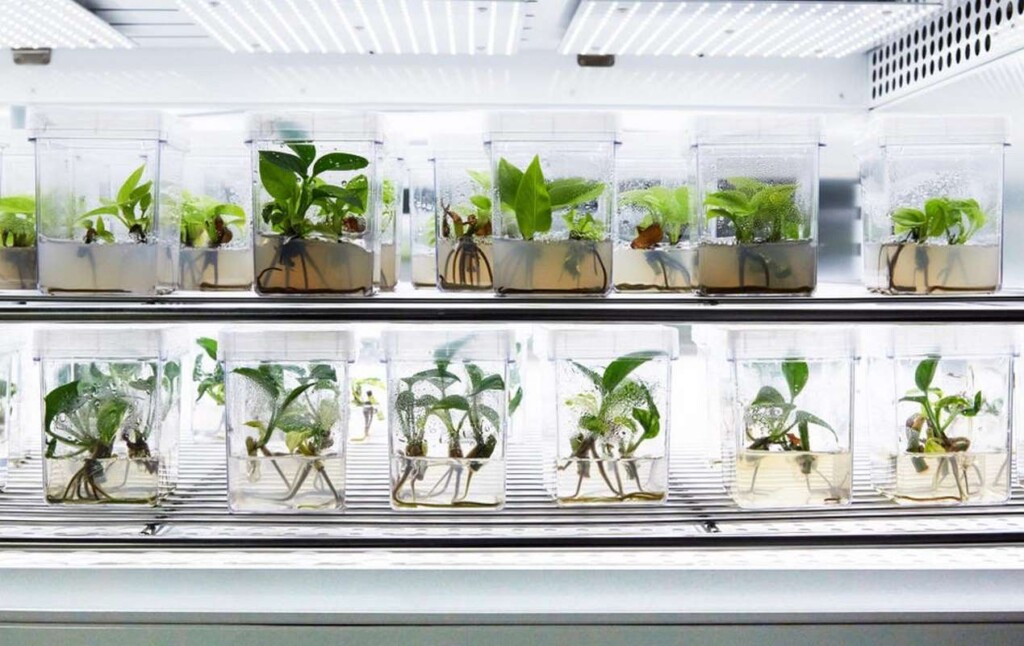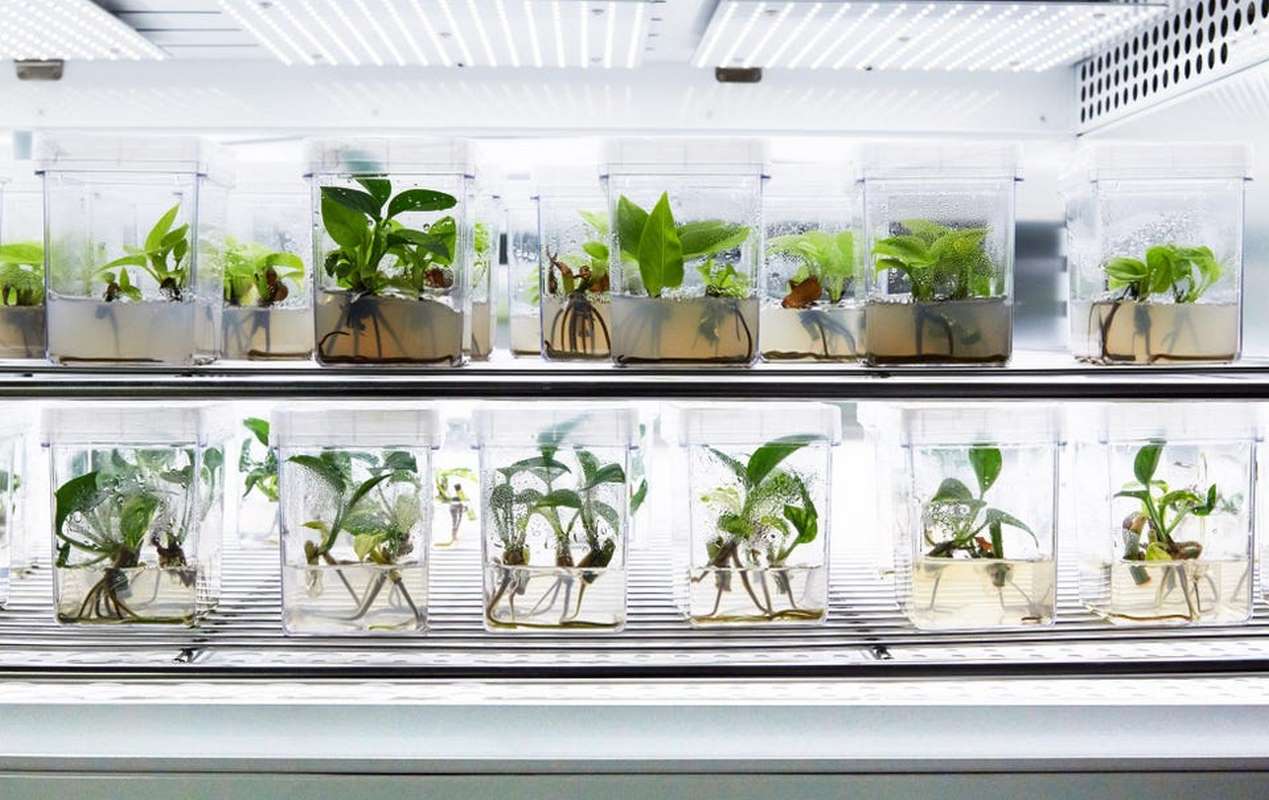
A company in France has developed genetically-enhanced houseplants that remove 30 times more indoor air pollutants than your normal ficus.
Paint, treated wood, household cleaners, insulation, unseen mold—there is a shopping list of things that can fill the air you breathe in your home with VOCs or volatile organic compounds. These include formaldehyde and other airborne substances that can cause inflammation and irritation in the body.
The best way to tackle this little-discussed private health problem is by keeping good outdoor airflow into your living spaces, but in the dog days of summer or the depths of a Maine winter, that might not be possible.
Houseplants can remove these pollutants from the air, and so the company Neoplants decided to make simple alterations to these species’ genetic makeup to supercharge this cleaning ability.
In particular, houseplants’ natural ability to absorb pollutants like formaldehyde relies on them storing them as toxins to be excreted later.
French scientists and Neoplants’ co-founders Lionel Mora and Patrick Torbey engineered a houseplant to convert them instead to plant matter. They also took aim at the natural microbiome of houseplants to enhance their ability to absorb and process VOCs as well.
YOU MAY ALSO LIKE: Man’s Biological Clock Set Back 10 Years After 93 Days Living Under the Ocean in a Research Station
The company’s first offering—the Neo P1—is a Devil’s ivy plant that sits on a custom-designed tall stand that both maximizes its air-cleaning properties and allows it to be watered far less often.
Initial testing, conducted by the Ecole Mines-Telecom of Lille University, shows that if you do choose to shell out the $179 for the Neo P1, it’s as if you were buying 30 houseplants. Of course, if you went for the budget route of 30 houseplants, you’d have to water them all.
MORE WELLNESS-CENTERED BUSINESS: Kava Plant Used for Centuries in Traditional Medicine Now Studied for PTSD Treatment
The founders pointed out in an interview done with Forbes last year that once they settled on the species and fixed the winning genetic phenotype, the next part of the process was just raising plants, the same activity done in every nursery and florist in every town in Europe.
Deliveries for the P1 are estimated for August 2024.
SHARE This Amazing Idea And Accomplishment With Your Friends…




















